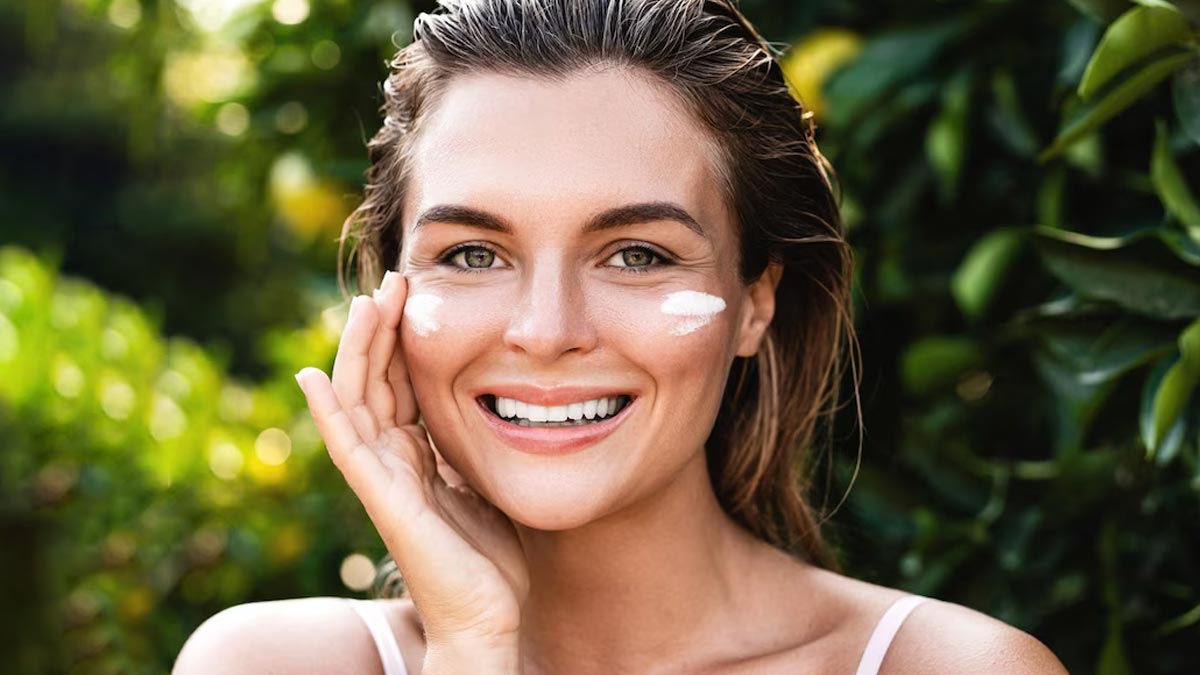
Summer can take a massive toll on your skin's health. The scorching heat and the intense humidity can often lead to acne breakouts, clogged pores, and dry, inflamed skin. In certain cases, increased sun exposure can also pose great risks for people with skin problems like eczema or even make them more susceptible to chronic conditions like skin cancer. This is when sunscreens with a high Sun Protection Factor (SPF) become handy.
Table of Content:-
In an interaction with OnlyMyHealth, Dr Geetika Srivastava, Dermatologist, and Founder of Influennz Skin and Hair Clinic in Delhi, described SPF as a measure of how well a sunscreen can protect a person's skin from the harmful effects of UVB rays, which are the primary cause of sunburn and contribute significantly to skin cancer.
Also Read: How To Pick The Right Sunscreen For Your Skin: The Ingredients To Look For And Avoid
"UVB rays are a subset of ultraviolet radiation that is responsible for burning the superficial layers of your skin... SPF primarily measures the effectiveness of a sunscreen in blocking these harmful rays," she further explained.
While most of us understand the role of sunscreens, who likes to layer their skin with multiple skincare products, especially in the summer heat? And therefore, we asked our expert whether or not daily face moisturisers with SPF do the same job as sunscreen. Here’s what she said:
Is A Face Moisturiser with SPF As Effective As Sunscreen?

Cutting to the chase, Dr Srivastava said, “Face moisturisers with SPF can be effective, but only if they have an SPF of at least 30.” This means that anything less than 30 SPF may not provide adequate protection against UVB rays.
In fact, when applied properly, an SPF 30 sunscreen can block around 97% of UVB rays, according to the dermatologist.
It is important to note that higher SPF numbers do not offer exponentially greater protection.
"In reality, the increase in protection beyond SPF 50 is minimal. SPF 50 provides 98% protection, and anything higher only offers a fraction more, which is often negligible," said Dr Srivastava.
SPF Is Not Enough Though

 According to the expert, skin protection demands more than just SPF.
According to the expert, skin protection demands more than just SPF.
She said, “While SPF measures protection against UVB rays, it does not account for UVA rays, which penetrate deeper into the skin and contribute to premature ageing and skin cancer.”
“Therefore, it is crucial to look for sunscreens that offer broad-spectrum protection, which includes a UVA protection factor. The PA rating system, represented by plus signs (PA+, PA++, PA+++), indicates the level of protection against UVA rays,” she added.
Also Read: Explainer: Can Sunscreen Protect Against Skin Cancer?
Other Ways To Protect Your Skin In Extreme Heat

Comprehensive sun protection involves various strategies to shield your skin from harmful UV rays and heat. These include:
- Avoiding sun exposure during peak hours between 10 a.m. and 4 p.m.
- Seeking shade and using umbrellas when outdoors
- Wearing clothing designed to protect against UV rays, look for garments labelled with an Ultraviolet Protection Factor (UPF)
- Wearing long-sleeved shirts, wide-brimmed hats, and sunglasses with UV protection
Bottomline
Dr Srivastava signed off by reiterating the importance of SPF and using broad-spectrum sunscreens for skin protection. During hot, humid weather, moisturisers with SPF can be a convenient option. But remember, for extended sun exposure, reapply sunscreen regularly, regardless of SPF.
Also watch this video
How we keep this article up to date:
We work with experts and keep a close eye on the latest in health and wellness. Whenever there is a new research or helpful information, we update our articles with accurate and useful advice.
Current Version